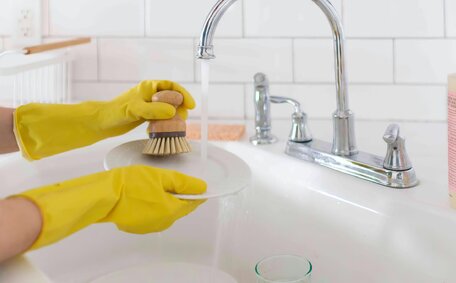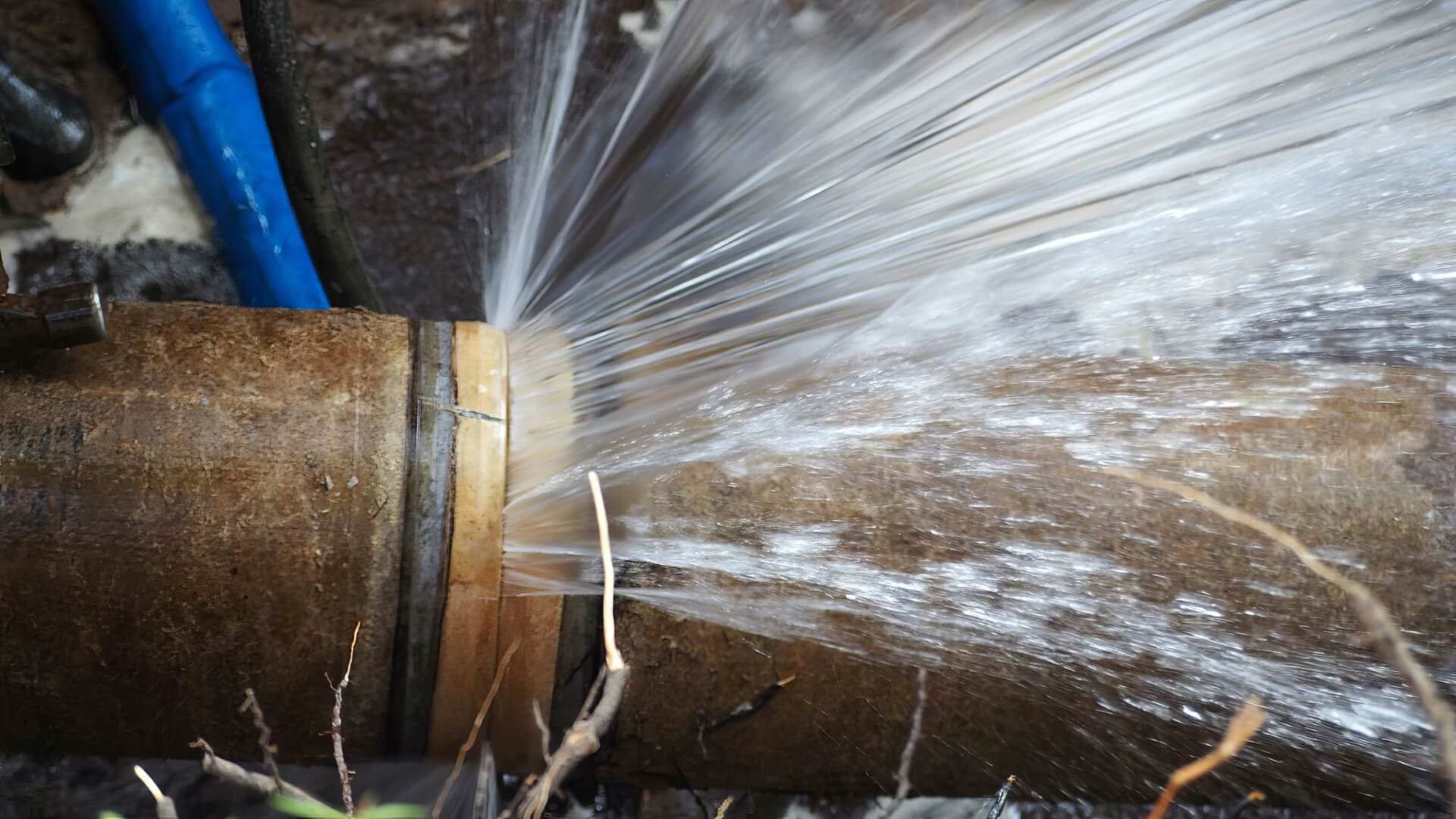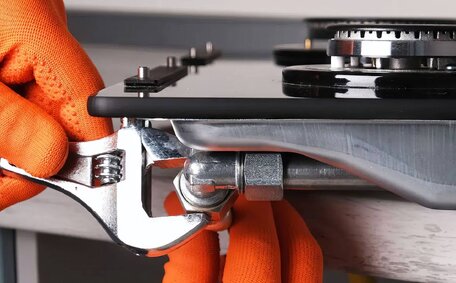Understanding Your Gas Meter and Main Shutoff Valve
Knowing the location of your gas meter and how to operate the main shutoff valve is crucial for safety.
In an emergency, such as smelling gas or suspecting a leak, immediately rotate the gas meter valve handle to the off position, perpendicular to the pipe, after turning off all gas appliances and pilot lights in your home.
It’s critical to know how to safely cut off the gas supply during emergencies, using the meter situated at the side of your premises. Ensure all occupants know the gas meter’s location and function, and that it is easily accessible.
Locating the Gas Meter Box
In Chatswood, Sydney, the streetside valve is usually housed in a metal box at the property’s front. Check the front wall of your house for a secured metal box, typically painted grey or with a metallic finish.
To access the gas meter box, use a flathead screwdriver to twist and lift the latch open. When opened, the box reveals gas lines and valves, including the gas meter that displays usage readings, showing how to execute turn-off procedures. The principal gas shutoff valve will be linked by the gas line directly to your gas metre, serving as a critical control point for the gas supply your dwelling depends on.
When accessing the gas meter box, be cautious to avoid nearby ignition sources that could cause a spark. Avoid smoking nearby and don’t use any electrical devices around the open box. Before opening the box, make sure the area is well-ventilated.
Identifying the Main Shutoff Valve
Gas pipes connect the main gas shutoff valve to the gas meter. It can be identified by its valve handle which allows you to manually turn your gas supply on and off.
If the valve handle is in line with the pipe, the gas flow into your home is active, indicating the gas supply is not switched off. Turning the valve handle 90 degrees, so it’s transverse to the pipe, stops the gas flow and the service.
It’s essential for shutting off your natural gas supply to know where your main shutoff valve is located and how to operate it in an emergency. Ensure every household member knows the location and operation of the main shutoff valve for rapid action in emergencies.
Safety Precautions Before Turning Off Gas
Take necessary safety measures before attempting to shut off the gas supply completely. Firstly, switch off all gas appliances, ensuring pilot lights are extinguished, particularly for heating systems such as stoves, ovens, and water heaters. Open windows and doors to ventilate the area.
Ensure everyone has left the property before touching the gas meter or valves, especially if a pilot light is on, and consult gas professionals if unsure of the next steps. Keep your mobile phone handy to seek further information or to contact the gas company in case of a leak.
To minimise ignition risks, refrain from using open flames, smoking, or operating electrical equipment during the process. The question of 'how do I turn the gas supply back on myself’ should never arise - call a licensed gas fitter if gas needs to be reconnected.
Turning Off All Gas Appliances and Pilot Lights
Prioritise your safety by learning how to switch off the gas supply to all appliances and extinguish pilot lights before taking action. start by turning off and unplugging any gas appliances like your gas stove, ovens and hot water systems. It’s wise to familiarise oneself with shutting off knobs, including those on your hot water system and other devices, affirming they are disengaged, particularly the valve behind stove.
Check pilot lights on appliances like your water heater and gas fireplaces have gone out - Do not try to relight pilot lights yourself once the gas is off. Should you be in doubt about the status of your pilot lights, opting to err on the side of caution is best, since you don’t want to take unnecessary risks — reach out to your gas supplier.
Turning off gas appliances and extinguishing pilot lights beforehand assists in ceasing the flow gas, averting hazardous accumulations. It also avoids them unexpectedly turning on once gas is restored, which risks fire/explosion.
Only after ensuring all gas appliances and pilot lights are off should you proceed to shut off the gas supply at the main valve on the meter. Safety first when managing your gas supply.
Ventilating the Area
It’s critical to keep the area where gas your system is handled, around the gas metre and shutoff valve, well-ventilated. Open all doors and windows in the vicinity to allow fresh airflow.
Dizziness, fatigue, or breathing difficulties are signs of poor ventilation. If you or other occupants experience any of these symptoms, evacuate immediately and call the gas company - do not attempt to turn back the gas on until the area has been declared safe by professionals.
Maintaining proper ventilation ensures any leaked gas can dissipate, reducing risk. It also alerts you quickly if gas builds up to hazardous levels so you can exit the area and contact emergency services.
Never take risks when working gas equipment - always put safety first by keeping the metre and valve area ventilated.
Step-by-Step Guide to Disconnecting Your Old Gas Supply
Step 1) Ensure all your gas appliances like stoves, ovens and hot water systems are switched off. To turn gas knobs, align them to the 'off’ position.
Step 2) Check there are no pilot lights on appliances still lit. Never relight pilots after gas is off.
Step 3) Open doors and windows around the gas metre to ventilate.
Step 4) Locate the gas metre metal box on the front exterior wall of the property.
Step 5) Insert a flathead screwdriver into the latch slot to open the box.
Step 6) Identify the gas shutoff valves connected by a pipe to the gas metre.
Step 7) To turn off gas, turn the valve handle 90 degrees horizontal across the pipe.
Step 8) Reach out to your gas company to help restore the supply - avoid reinitiating it personally.
Handling Gas Leaks and Emergencies
If you smell gas or suspect a gas leak, immediate action is required. Usher all individuals out of the building and carry out a thorough check for any potential ignition sources in the vicinity that could trigger an explosion. Do not operate any electrical devices or switches.
From a safe location, call your gas supplier’s 24 hour emergency line to report the leak. If the gas smell is more than just noticeable or I am unsure where the leak source is, also call emergency services.
You should turn to professionals and never try to locate or stop a gas leak yourself - this requires specialised expertise and equipment. Avoid re-entering the property until emergency crews have given the all clear, and you might wonder, 'how do I know it’s safe to return?' Wait for a professional’s assurance.
For minor gas leaks from appliances, turn off the affected device and contact a licensed technician. Shut off the main gas supply at the metre if the leak can’t be isolated from the appliances your home.
Knowing how to respond in a gas emergency could save lives. Evacuate, call for help from professionals and never take risks trying to manage gas systems without proper training.
Safely Turning the Gas Supply Back On
Reactivating your gas supply once it’s been deactivated should only be a task for skilled technicians, ensuring that you don’t personally have to turn off my gas. Never attempt to disconnect gas or turn the valve back on yourself.
After shutting off the gas supply, particularly during an emergency, there’s a risk of damage or leaks in pipes and appliances. A licensed professional should conduct safety inspections for any gas issues before restoring the supply, akin to procedures followed when turning off water.
After any maintenance work on gas systems, do I need a professional? Yes, a professional should also turn the gas back on and test for leaks. They have the expertise to conduct the process safely while you observe from a distance.
Professionals have equipment to sniff out tiny gas leaks plus solutions like leak sealant that amateurs wouldn’t have access to, ensuring gas been thoroughly checked. Don’t take risks - have your gas supplier send a technician to get your system safely up and running again after shutoff.
Using Professional Assistance for Gas Work
When it comes to any work on your gas systems, using a professional licenced technician is always advisable for safety and compliance.
Gas fitters are extensively trained and certified, enabling them to manage gas systems safely. They have the expertise to conduct leak checks, diagnose issues, repair or install new appliances, and get your gas running again after shutoff.
For significant tasks such as installing a new water heater or gas cooktop, it’s essential to employ a certified gas fitter to ensure correct installation, leak prevention, and functional safety features.
Engaging a professional for minor gas-related tasks offers assurance that the work complies with regulations. Technicians have specialised equipment to sniff out hard-to-find leaks and can provide compliance certificates.
If you’ve had to turn off your gas supply in an emergency, never attempt to turn it back on yourself - the pipes could be damaged. Insist your gas company sends a technician to restore supply and test for issues.
Our work, from repairing leaks to installing new gas appliances, adheres strictly to Australian Standards and follows Department of Energy guidelines for gas safety in your home or business.
Contact us on 1300 349 338 or [email protected]. At Chatswood Plumbing, our licenced gas fitters attend to all gas related work.






